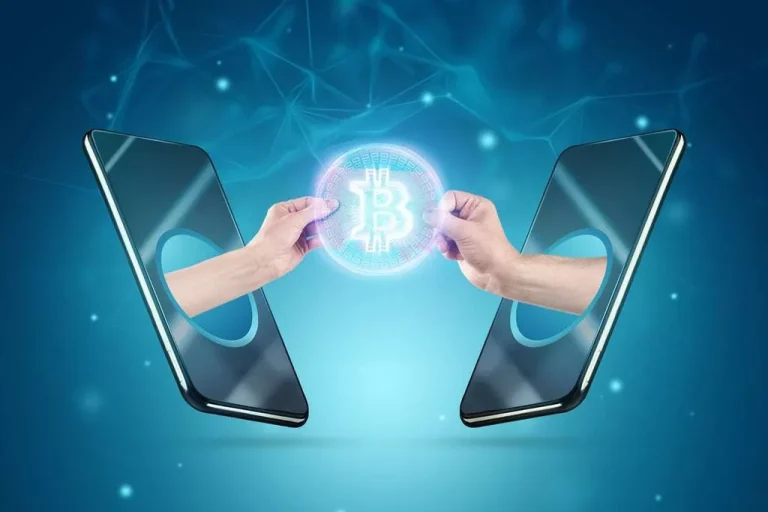Content
By Digital asset using smart contracts, supply chain participants can ensure transparency, traceability and efficiency in the movement of goods and services. Blockchain-based games use smart contracts for tamper-proof execution of in-game actions. One example is PoolTogether, a no-loss savings game where users stake their funds in a shared pool that is then routed into a money market where it earns interest. After a predefined time period, the game ends and a winner is randomly awarded all the accrued interest while everyone else can withdraw their original deposit. Similarly, limited-edition NFTs can have fair distribution models and RPGs can support unpredictable loot drops using randomness, helping to ensure all users have a fair shot at getting rare digital assets. Many projects access randomness using Chainlink Verifiable Random Function (VRF)—a random number generator (RNG) that uses cryptography to prove it’s tamper-proof, meaning the RNG process is publicly auditable.
Will smart contracts replace lawyers?
It was first mentioned in the 1990s by a man many call the father of smart contracts—renowned computer scientist Nick Szabo. One of these industries is known blockchain smart contract as ‘decentralized finance’, or ‘DeFi’. Which is essentially an entire ecosystem of decentralized financial services — like trading platforms, interest-bearing accounts, stablecoins, and insurance protocols. There’s even a smart contract that allows you access to your cryptocurrency tokens for a fixed duration. Ensuring you don’t sell or spend them too early and miss out on any potential price appreciation.
Find 20 AstraKode Smart Contract Auditor Alternatives
This came in 2015 with the release of Vitalik Buterin’s ‘Ethereum Blockchain Network’. Smart contracts were invented by computer scientist and cryptographer Nick Szabo in the 1990s, years before blockchain technology was created. Despite these challenges, it’s essential to remember that the world of smart contracts is still https://www.xcritical.com/ evolving.
Can smart contracts only be created with Ethereum?
Dapps, or decentralized apps, can be best thought of as a bunch of smart contracts tied together. Of course, there are downsides to smart contracts as well, particularly for those workers whose jobs this technology will render obsolete. And here are a few more ways smart contracts are helping to make the banking industry more efficient. Here are a few ways smart contracts are being utilized in the trading industry alone.

One workaround that many developers use to combat this limitation is creating upgradable smart contracts, where a proxy contract is used to point to a new, updated smart contract. This does not break smart contract immutability, but rather unlocks the ability to direct users to a new, upgraded smart contract. Smart contracts are code written into a blockchain that executes the actions two parties agree to outside the chain. By automating these actions, the need for an intermediary or trust between the parties is removed.
Because it is difficult to perfectly synchronize every node, timestamps can be manipulated to generate logic attacks against contracts executing time-critical provisions. Multi-signature contracts require multiple parties to provide their approval or signatures before a transaction can be executed. These contracts add an extra layer of security and can be used in situations where consensus or agreement from multiple parties is necessary. There are a variety of popular smart contract programming languages, including Solidity, Vyper, Rust, and more. A smart contract is a programme consisting of data and functions that can auto-execute upon receiving a transaction request on a blockchain.
Learn how tokenization could bring trillions in value to blockchains. The purpose of this website is solely to display information regarding the products and services available on the Crypto.com App. It is not intended to offer access to any of such products and services.
- One oracle (one of the streaming data sources that sends event updates) needs to protect against hackers faking events that trigger smart contracts into executing when they should not.
- Smart contracts can bring unprecedented transparency and efficiency to supply chain finance.
- Before making financial investment decisions, do consult your financial advisor.
- It also means that John does not have to trust that AXA will pay him the agreed amount if his flight is late — he knows that if it is late, the smart contract will instantly send him his compensation ($100).
- Which is essentially an entire ecosystem of decentralized financial services — like trading platforms, interest-bearing accounts, stablecoins, and insurance protocols.
- However, while there are some parallels that can be drawn between traditional and smart contracts, they are not the same.
The difference with smart contracts is, instead of a bank (or any third party) being the controller of that decision, the blockchain makes the determination. A smart contract can remove the need to trust multiple parties in the process of buying something. Vitalik Buterin, and the Ethereum community, believe that this is the future of the blockchain. If Bitcoin is the gold of the business world, smart contracts are the oil the business world runs on. Gas fees fluctuate widely and are mostly determined by supply and demand and the number of validators operating.
The smart contract defines exactly how users can interact with it, involving who can interact with the smart contract, at what times, and what inputs result in what outputs. While Ethereum is the most popular blockchain platform for smart contracts, rivals like Cardano have emerged as new ecosystems for developers to build innovative and secure decentralized applications. The integration of artificial intelligence (AI) is also emerging as an innovative development for smart contracts. AI algorithms can analyze data and execute actions based on predefined rules embedded in smart contracts. This combination of AI and smart contracts can enable automation and intelligent systems that can adapt and respond to real-world events in real time.
However, there’s a significant differentiation between centralised and decentralised blockchains that can affect the smart contracts deployed on the chain. Throughout this process, the beauty of smart contracts is their autonomy. Instead, they rely on the predefined, transparent rules set within them, automating trust and ensuring every party gets what they’re promised. Today’s blockchain technology has elevated this concept to a practical reality. Contracts aren’t just written and signed; they are programmed, automated, and self-executed, marking a significant leap in handling agreements in the digital age. You select your favourite chocolate bar, insert the coins, and instantly, your treat tumbles down.

When applied to multi-party digital agreements, smart contract applications can reduce counterparty risk, increase efficiency, lower costs, and provide new levels of transparency into processes. Smart contracts enable self-sovereign identity (SSI), a key digital concept in Web3 that enables users to control the information they use to prove their identity to websites and online applications. SSI uses smart contracts to provide a seamless, user-centred Internet for individuals, who own and control their personal data (the counterparties do not need to hold users’ sensitive data to verify transactions).
There are a seemingly infinite amount of variables that must be manually accounted for. The vending machine model works because both the money and the product are stored in a ‘lockbox’. So a vending machine is programmed to release (output) a quantity of product when a certain amount of money is inserted (input).
There are many other scenarios where smart contracts can shine, such as trading, settlement, etc. Although events and logs are technically part of smart contracts, it is important to note that smart contracts cannot read event data. Any contract data must be assigned to a location, either to storage or memory. The data can be the number of tokens, outputs of functions, and so on.
Smart contract knowledge will likely become an essential skill for lawyers in the future. Smart contracts are not just digital agreements but are intricate coded instructions designed to carry out specific tasks. Once you’ve agreed to the rules and set them in motion, the code ensures that every action adheres to those guidelines. A smart contract is not “smart” in the true sense of the word, it is rather only as clever as its creators. Timestamps are markers of time created by nodes executing smart contracts.
